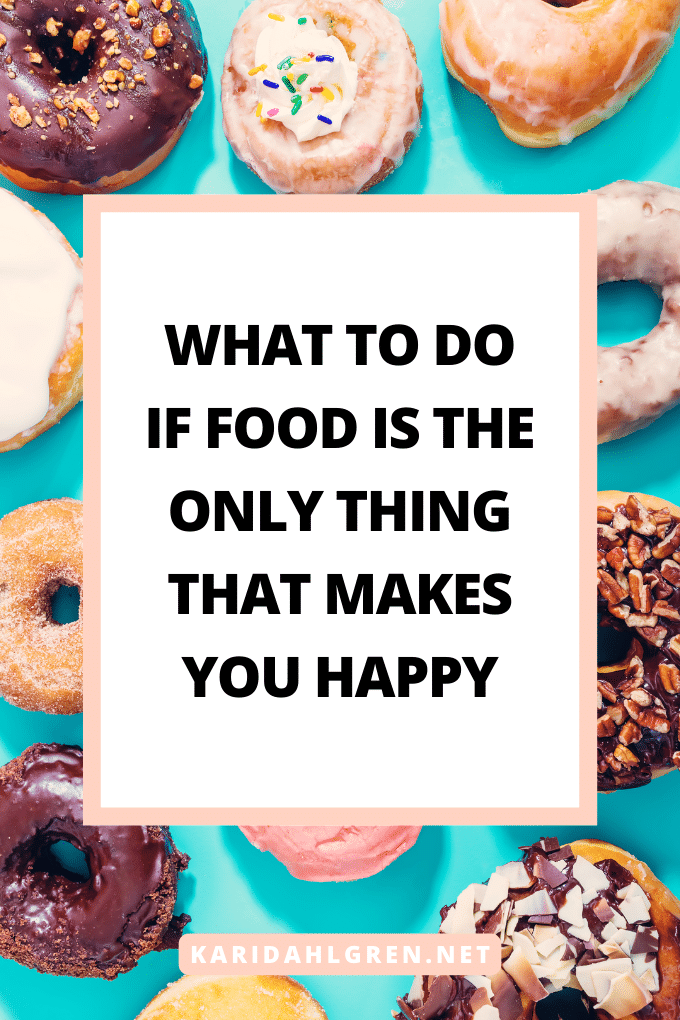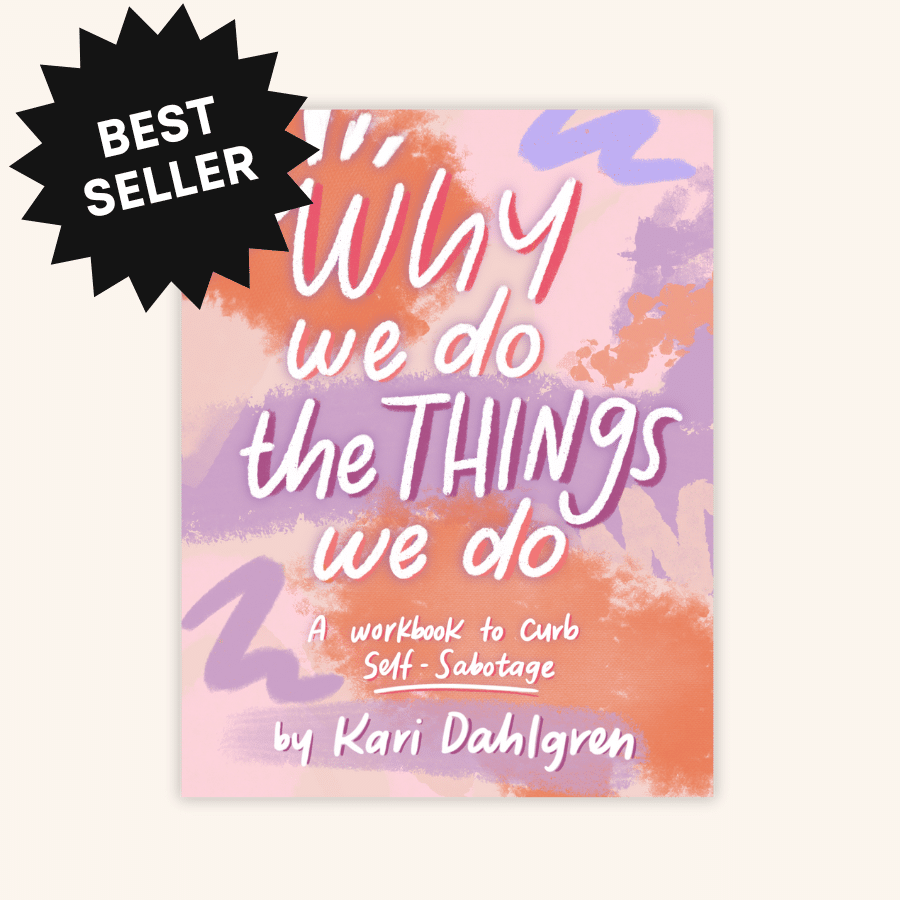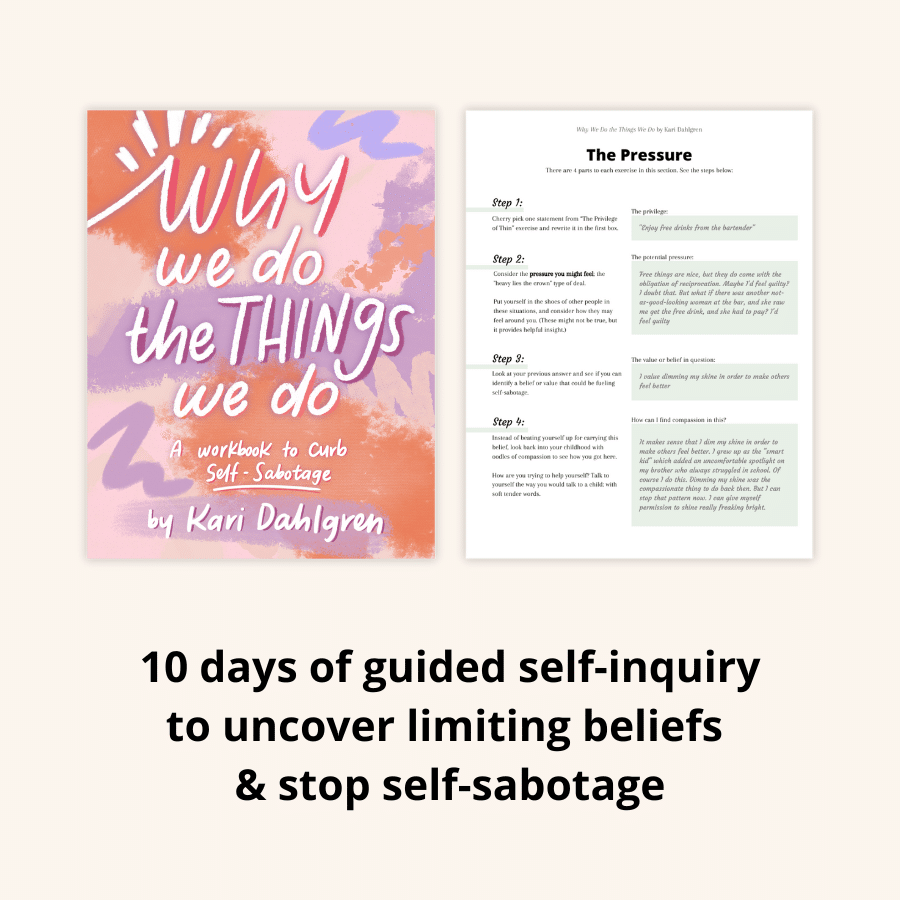
In a world where we’re constantly overwhelmed by stress and work pressures, it’s understandable to seek comfort in the one thing that seems to provide unwavering joy: food.
For many of us, food is not just sustenance; it’s a source of comfort, a way to celebrate, and sometimes, the only thing that seems to make us happy. If you’ve ever found yourself thinking, “Food is the only thing that makes me happy,” know that you’re not alone. This sentiment is a reflection of the complex relationship we often have with food.
In this article, you’ll learn why finding happiness in food isn’t bad—it’s actually a healthy habit. I’ll also outline the steps you can take if relying solely on food for happiness results in overeating or emotional eating. My hope is these tips help you find a more balanced relationship with food, where it’s one of many sources of happiness in your life.
Why It’s Healthy to Find Pleasure in Eating
In a culture obsessed with dieting, it’s common to hear people talk about their “guilty pleasures” when it comes to food. This notion implies that finding joy in eating and having a love of food is somehow wrong or shameful. In reality, finding pleasure in eating is not only healthy but also beneficial and something we should strive for.[1]
Many people associate a love of food with overeating, leading to a cycle of restriction and anxiety. One study found that individuals who frequently restrict their food intake tend to experience higher levels of anxiety compared to those who eat more freely.[2]
Even among people who enjoy food, those who engage in high levels of restrained eating (e.g. dieting, making certain foods off-limits) experienced increased anxiety.[2] This illustrates the tension that many of us feel between the desire to enjoy food and a feeling of obligation to limit it.
Despite pervasive diet culture which admonishes a love of food, eating pleasure has emerged as an appropriate tool for healthy eating and Canada has even included enjoyment of food as a healthy eating recommendation.[1]
There is nothing wrong with finding joy and happiness in food.
Eating pleasure is crucial for fostering a healthy relationship with food. However, when food is the only thing that makes you happy, it can lead to unbalanced eating habits.
When we eat for pleasure outside of the limits of physical hunger, it’s referred to as “hedonic eating,” where the root word ‘hedon’ refers to pleasure. Again, while there’s nothing wrong with finding pleasure in food, hedonic eating can make it difficult to stop at physical satiety and easily segues into emotional eating.[3]
When “Happy Eating” Turns into Emotional Eating
While it’s common to associate emotional eating with buffering negative emotions, it’s important to recognize that positive emotions such as happiness can also lead to emotional eating. Joy is a basic human need, and when food becomes a sole source of happiness, it can create a predisposition for overeating.
One study found that positive emotional eating significantly predicted binge eating, suggesting that even positive emotions can lead to problematic eating behaviors.[4] Furthermore, a systematic review highlighted that food is more likely to be consumed in response to positive emotion compared to negative emotion.[5]
This indicates that positive emotions such as happiness or joy can trigger emotional eating more than stress, depression, and sadness.
Considering this, imagine the heightened inclination to turn to food for comfort when it becomes the only source of happiness in one’s life. I hope this sparks a wave of self-compassion. By recognizing the role of positive emotions in eating behavior, it can help motivate the search for alternative sources of joy beyond food.
Potential Consequences of Allowing Food to Be Your Only Source of Happiness
When it feels like food is the only thing that makes you happy, it can spur a vicious cycle of negative health consequences that heighten and perpetuate the exclusive link between happiness and food. While eating can and should be a pleasurable experience, there are adverse effects of allowing food to be your only source of joy.
Here are some potential consequences when food becomes a sole source of happiness:
- Guilt and Shame: While seeking joy through food can bring temporary pleasure, it often leads to feelings of guilt and shame, particularly when it clashes with personal health goals or societal expectations rooted in fat stigma. It’s important to recognize that these feelings are a product of external pressures and not a reflection of your worth.
- Emotional Dependency: When food is the only thing that makes you happy, it can create an emotional dependency on food, making it challenging to eat according to body cues (i.e. eating when you’re hungry and stopping when you’re full).
- Increased Risk of Disordered Eating: Regularly using food as a coping mechanism to stimulate positive emotion can contribute to the development of disordered eating patterns, such as overeating or even binge eating.[4]
- Diminished Emotional Awareness: When food is the only source of happiness in one’s life, it can hinder the development of healthier non-food coping strategies and reduce the ability to identify, label, and cope with the full spectrum of emotions.
- Secret Eating: When there is an exclusive link between happiness and food, it can lead to secretive eating behaviors, where individuals may hide their eating habits due to fear of judgment or shame. This secrecy can create a sense of isolation and diminish the otherwise positive feelings associated with eating, perpetuating the problem.
- Weight Gain: Relying on food as a sole source of happiness can lead to overeating, which may result in unintended weight gain and potential health issues. Eating pleasure is associated with healthy eating, but when food becomes the only pleasure in one’s life, it can tip the scale in the direction of overeating and emotional eating.
- Nutritional Imbalance: Joy eating often involves choosing comfort foods that are high in sugar, fat, and calories but low in essential nutrients, increasing the risk of nutritional deficiencies over time.
By understanding the potential pitfalls of relying solely on food for happiness, you empower yourself to seek alternative sources of joy and fulfillment. Let’s dive into the specifics of what this might look like in your daily life.
How to Honor Happiness Around Food Without Overeating
There’s a fine line to walk between honoring the pleasure of food and staying mindful that it doesn’t overshadow other forms of pleasure in your life. Fortunately, there are plenty of steps that you can take to walk that line and enjoy a love of food without overeating.
Here are some steps for finding a balanced relationship with food and happiness:
1. Diversify Your Joy
In the pursuit of a balanced and fulfilling life—one where food is one of many sources of happiness—diversifying your joy is essential. When we rely solely on food for happiness, we increase the risk of overeating and overlook the myriad of other pleasures life has to offer.
Here are some ways to add happiness to your life outside of food:
- Creative Pursuits: Exploring creative outlets like painting, writing, or playing a musical instrument can offer a sense of creative expression. Adult coloring books have also become a popular stress reliever and for many people, it makes them happy.
- Social Connections: Spending quality time with friends and family or participating in community activities can foster meaningful connections and a sense of belonging. For anyone struggling with loneliness or social anxiety, consider working with a therapist to work towards this goal.
- Physical Activity: Engaging in exercise or physical activities that you enjoy—such as dancing, hiking, or yoga—can release endorphins and provide a natural mood boost. For those who don’t enjoy exercise, it’s important to move your body for physical health but don’t feel bad if you don’t always find it enjoyable. The goal is to alleviate guilt and shame, not add to it.
- Mindfulness and Relaxation: Practicing mindfulness techniques, meditation, or simply taking a relaxing bath can help you find peace and tranquility in the present moment. Again, this isn’t everyone’s cup of tea. If you find meditation relaxing, by all means, make it a source of happiness in your life! If you don’t find happiness in it, simply move onto the next self-care idea.
- Learning and Personal Growth: Pursuing new knowledge or skills, whether through reading, taking a class, or attending workshops, can provide a sense of personal growth and happiness for some people.
- Shows, Movies, and Television—Yes, Really! In my experience as an eating psychology coach, I often encounter clients who feel obligated to fill every moment of their downtime with productivity. However, this mindset can lead to burnout and further depletion of joy.
It’s important to recognize that indulging in “mindless” tasks such as beloved television shows can provide a much-needed source of joy and relaxation, particularly during a busy and stressful day. Embracing these moments of leisure can contribute to more feelings of happiness and a reduced reliance on food for joy.
One reason why it’s important to avoid putting too much pressure on productivity, especially in the realm of overeating, is that stress is strongly associated with negative health consequences like weight gain, anxiety, emotional eating, and decreased immune function.[6]
Discovering activities that make you happy is distinctly separate from activities that help you grow and develop as a person. On some days, they might overlap, and some days they won’t and it’s important to let that be okay.
2. Explore Other Emotions Beyond Food-Happiness
If food is your primary source of happiness, it’s possible that there are other challenging emotions that need attention as well—such as stress, anxiety, or loneliness. These emotions, if left unaddressed, can fuel emotional eating. Developing emotion regulation skills can help reduce overeating by allowing you to manage these emotions more effectively.[7]
My Stop, Drop, and Feel method is a powerful tool in this context. It involves pausing (Stop) when you notice the urge to eat for emotional reasons, taking a moment to sit with your feelings (Drop), and then allowing yourself to fully experience and acknowledge those emotions (Feel). This helps you develop more tolerance for negative emotions (emotional tolerance) which is associated with reduced overeating tendencies.[8]
By exploring and managing a wider range of emotions, you can reduce the reliance on food for happiness and find more balanced ways to cope with life’s ups and downs. This approach not only supports healthier eating habits but also contributes to overall emotional well-being.
3. Address Any Potential Loneliness
In my line of work, I hear stories from readers and clients of all stages of life—divorcees that struggle with knowing what happiness is outside of marriage, empty nesters who have suddenly lost the happiness of raising kids in the house, and lots of people struggling with loneliness. If you resonate with the idea of using food as a coping mechanism for loneliness, know that you are not alone—truly.
Reaching out to friends or family, joining clubs or groups with similar interests, or even volunteering can help you build connections and reduce feelings of isolation. I personally found my local Toastmasters (public speaking) club to be an excellent way to meet like-minded people. As mentioned earlier, if you struggle with social anxiety, working with a therapist can immensely help. I can personally attest that that!
4. Heal Body Image Through Intuitive Eating
When someone relies heavily on food for emotional comfort, it can lead to feelings of guilt and shame, which can negatively impact body image. Struggles such as hating one’s body or constantly “feeling fat and ugly” can challenge anyone’s self-esteem.
Intuitive eating, with its emphasis on listening to and honoring the body’s hunger and fullness cues, has been shown to improve body image, self-esteem, and well-being.[9] By focusing on internal cues rather than external rules or societal standards, individuals can start to appreciate their bodies for what they can do, rather than just how they look.
By learning self-trust and body respect, individuals can break free from the belief that their value is tied to their appearance or their ability to control their food intake. This can help spur the motivation and energy to find happiness outside of food.
Eating Can and Should Be an Enjoyable Experience
Along with all of these tips, it’s important to remember that finding happiness and joy in eating is not only natural but healthy. Eating pleasure is linked to healthier eating habits and an improved relationship with food.
When you begin to feel like food has become the only source of happiness in your life, try to take self-care steps to diversify your joy and address any other emotions that could potentially fuel emotional eating. By honoring the pleasure you find in eating and cultivating joy outside of food, a more harmonious relationship with food can emerge.



